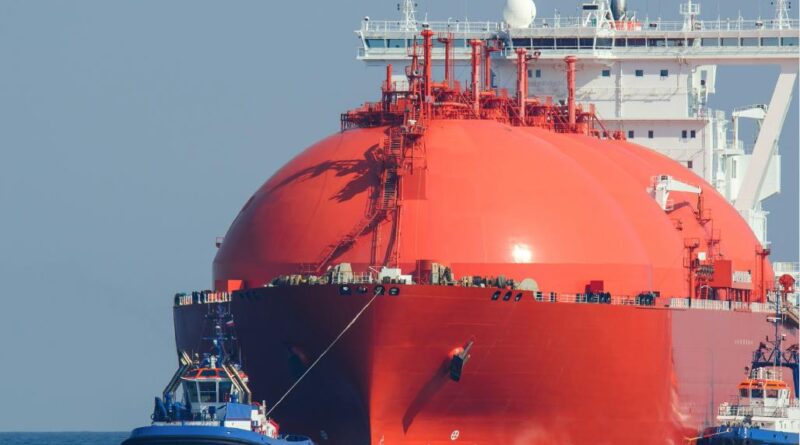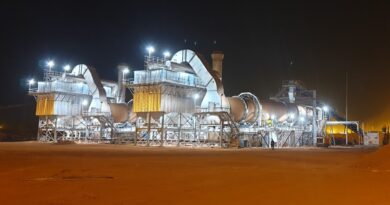Should Europe look for alternatives to Russian energy?
In the short term, European customers are reliant on Russian oil, gas and coal. Governments are looking for ways to reduce that dependence over the medium and long term.
As fighting raged across Ukraine over the weekend, western countries moved quickly to disrupt Russia’s links to the global economy. In the short term the implications for energy have been minimal. The financial sanctions introduced in recent days have generally been specifically designed with exemptions for the energy trade, to avoid interrupting the flow of oil, gas and coal from Russia. In the medium and longer term, Russia’s invasion of Ukraine could cause a fundamental shift in its energy trading relationships with the rest of the world, and particularly with western Europe. Signs of that realignment are already starting to emerge. A long-term shift away from reliance on Russian energy and towards other sources — including LNG, renewables and nuclear power — has been signaled by European leaders.
On Saturday, the leaders of the US, EU, UK, Canada, France, Germany and Italy announced financial sanctions intended to “further isolate Russia from the international financial system and our economies.” The measures include excluding some Russian banks from the SWIFT messaging system used for international payments, and restrict the Russian Central Bank’s use of its international reserves. The announcement had an immediate impact on the Russian rouble, which fell sharply in early trading on Monday morning.
The immediate impact on oil and gas sales, however, will be muted. The new sanctions “will either carve out certain energy-focused banks or use product definitions in the SWIFT system to permit energy-related transactions”.
As the world’s second-largest producer of natural gas, and one of the big three producers of crude oil, along with the US and Saudi Arabia, Russia plays a critical role in global energy supplies. Wood Mackenzie analysts warned last week that if the EU were to impose sanctions that stopped Russian gas flows immediately, it could by next winter result in shortages, factory closures, rising prices and ultimately a global recession.
Jen Psaki, President Joe Biden’s press secretary, said that energy sanctions were still “on the table” for the US and other countries, but highlighted the dilemma they faced. “We want to take every step to maximise the impact and the consequences on President Putin, while minimising the impact on the American people and the global community,” she said.
However, there have been several signs on recent days of western governments aiming to take steps that would over time reduce their reliance on energy imports from Russia. Olaf Scholz, Germany’s chancellor, told a special session of the Bundestag on Sunday morning that his government would accelerate the construction of two new LNG import terminals and add to Germany’s gas reserves in storage.
Germany shut down three nuclear power plants last week, and its last three are scheduled to close at the end of the year. There is now widespread agreement that it is too late to try to keep them open. Chancellor Scholz’s SPD-led government has supported the nuclear exit, and wants “ideally” to close coal-fired power plants by 2030.
It has acknowledged that an increased reliance on gas is likely to be a consequence. But it is now seeking to diversify the sources of that gas. The decision to delay the Nord Stream 2 gas pipeline from Russia, which the German government had previously supported, was a stark illustration of how the landscape has changed.
“We will do more to ensure secure energy supply for our country,” Scholz told the Bundestag. “We must change course to overcome our dependence on imports from individual energy suppliers.”
In France, meanwhile, the government is betting on nuclear power as a way to enhance energy security while cutting emissions. President Emmanuel Macron earlier this month announced the rebirth of the country’s nuclear industry, with up to 14 new reactors planned by 2050.
In another sign of energy links between Russia and the west being loosened, BP announced on Sunday that it would exit its 20% shareholding in Rosneft. Both BP-nominated directors on the Rosneft board, Bernard Looney and Bob Dudley, resigned with immediate effect. The decision means BP will take two non-cash charges in its first quarter earnings: one for the difference between the assessed fair value of the Rosneft stake and its carrying value of $14 billion, and another of $11 billion mostly for accumulated foreign exchange losses.
Helge Lund, BP’s chairman, said in a statement that the company had operated in Russia with “brilliant” colleagues for 30 years, but the invasion of Ukraine “represents a fundamental change”. He added: “It has led the BP board to conclude, after a thorough process, that our involvement with Rosneft, a state-owned enterprise, simply cannot continue.”
Russia has been a reliable supplier of energy to western Europe and the world for many decades, through the Cold War, the collapse of the Soviet Union and the presidency of Vladimir Putin. That record of reliability, plus its abundant hydrocarbon resources, are the reasons that Russia plays such an important role in international energy markets. Finding alternatives will be neither quick nor easy. But western governments are at least thinking seriously about how it could be done.




